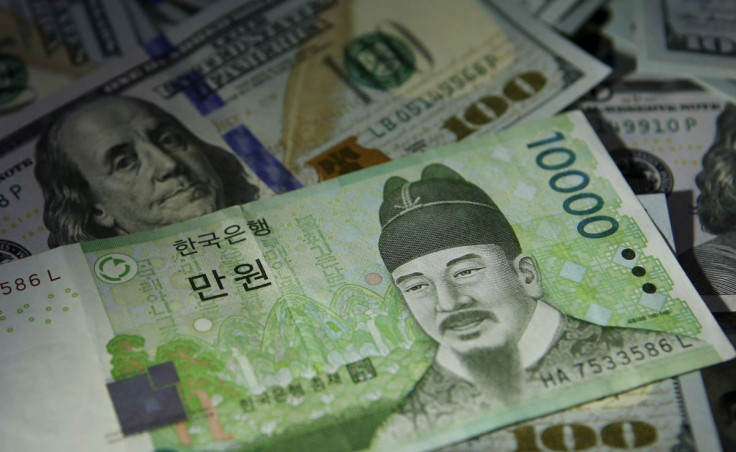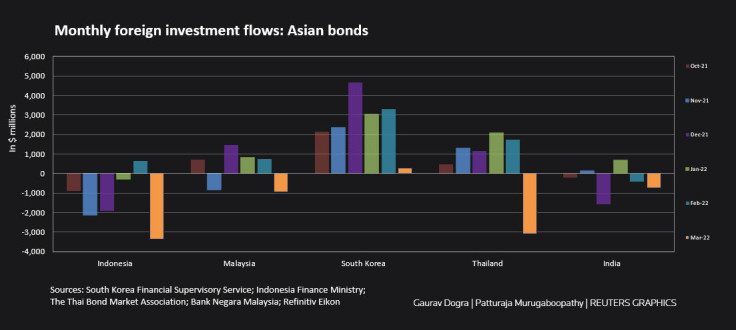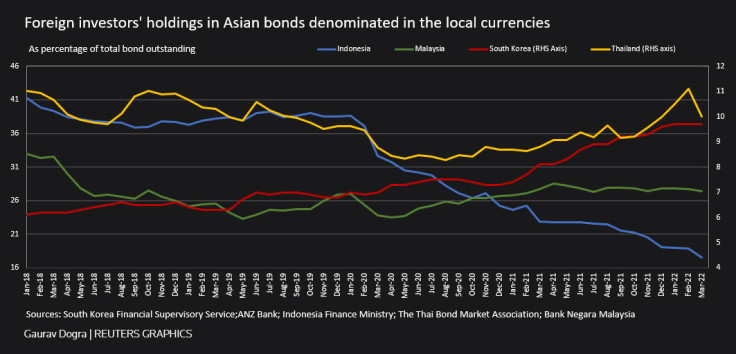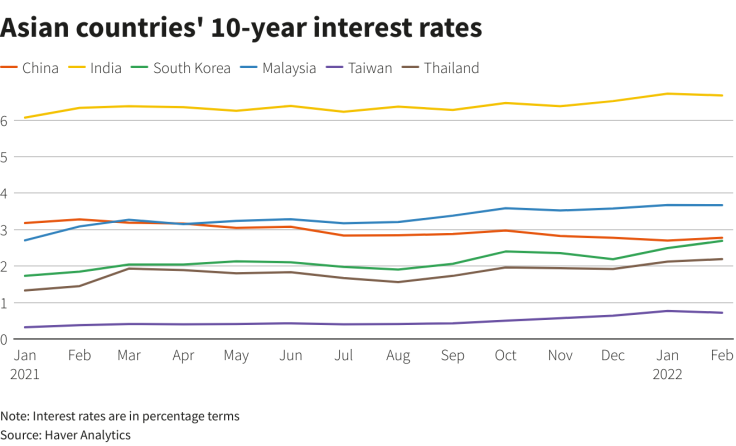Asian Bonds Record Biggest Monthly Foreign Outflow Since March 2020

Asian bonds witnessed their biggest monthly foreign outflow in two years last month, weighed down by a strengthening dollar and higher interest rates overseas, and analysts expect such selling to continue in coming months.
Overseas investors offloaded a combined net total of $7.87 billion in South Korean, Thai, Indian, Indonesian and Malaysian bonds last month, marking their first net selling since May 2020, data from regulatory authorities and bond market associations showed.
Monthly foreign investment flows: Asian bonds

Eugene Leow, a strategist at DBS Bank, said an unrelenting rise in the dollar rates due to a restrictive Federal Reserve affected Asian bonds last month.
"With U.S. rates no longer low in absolute terms, there are collateral damage to EM/Asia government bonds," he said.
The U.S. dollar index jumped 1.7% last month, posting its biggest gain in four months, on expectations of two half-point rate hikes from the Federal Reserve this year.
The Fed raised its interest rates for the first time in three years last month.
Foreigners sold Indonesian bonds worth $3.37 billion and Thai bonds worth $3.08 billion last month.
Foreign investors' holdings in Asian bonds

Malaysian bonds and Indian bonds also faced outflows of $958 million and $741 million, respectively.
Meanwhile, South Korean bonds saw inflows of $279 million, the lowest since December 2020.
South Korea has raised interest rates three times since August last year, and some analysts expect more such tightening measures from Asian central banks to counter foreign outflows this year.
"With inflationary pressures rising due to elevated commodity prices, Asian central banks are increasingly mulling rate hikes," said Khoon Goh, head of Asia Research at ANZ Bank. "This, coupled with the Fed about to embark on quantitative tightening, will keep portfolio flows in the region volatile in the near term."
The Taiwanese central bank's monetary policy will move in the direction of tightening this year, its governor said last month.
Asian countries' 10-year interest rates

© Copyright Thomson Reuters 2024. All rights reserved.





















